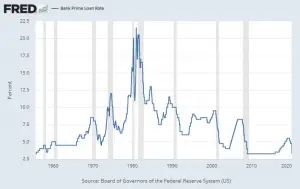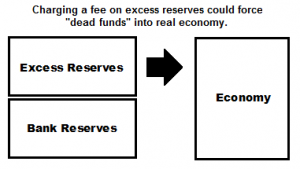Inflation can affect business in strange ways. It can be good for business in small doses, but it can also be disastrous if it devolves into hyperinflation. Hyperinflation is often described as massively increasing prices over a very short period of time, for example, in America during the Civil War. But even if inflation doesn't get that bad, the later stages of ordinary inflation such as we saw in the 1980s can still be devastating to businesses. Here are four ways that businesses are affected by inflation or hyperinflation, and what that might mean for their customers and other services they might invest in. #1 It Can Increase Sales In the short run, as the money supply increases, … [Read more...]
FED Looks for New Ways to Crank Up Money Supply
With all the talk about "Tapering" you'd think the FED was actually considering reducing it's money pumping. But in actuality that is not it at all. The FED is afraid that it is creating a a bubble in the stock market so it is looking for ways to continue its pumping but shift it enough so that the money goes somewhere besides just to the stock market. In other words, it is still worried about the economy and realizes that it is doing more harm than good but feels trapped, so it is looking for new ways that might work better. If the FED can figure out how to free up the log jam of "excess reserves" held by the banks, liquidity could be sloshing around the economy before you know it and … [Read more...]
2 Types of Money
From the beginning, productivity improved with specialization. If one person can produce fruit more efficiently while the other was a better hunter, more wealth will be generated if the hunter hunts and the farmer farms. Forcing the farmer to hunt or the hunter to farm is just plain inefficient. But in order for the system to work there has to be a medium of exchange. Somehow the farmer has to be able to get the wild game in exchange for his crops. And what if the farmer wants meat but his crops aren't ripe yet? Well, that is how credit developed. In today's post Bill Bonner looks at mediums of exchange i.e. money and credit. He examines how they began and what they mean for us and our … [Read more...]
Australian Banks Rated As Low Risk
Australian Banks and Economic Environment Positive In a world analysis Australian banks have been found to pose a low degree of risk to the global financial system. According to Dr Robert Engle, the 2003 winner of the Nobel Prize in Economics and a professor of finance at Stern School of Business at New York University, the Australian banking system is robust and capitalized enough to endure another financial crisis. He said the economic environment was positive from an Australian perspective and that the liquidity measures that had been implemented were proving to be effective. The comments were made as part of Dr Engle’s presentation on systemic risk within the worldwide financial … [Read more...]





